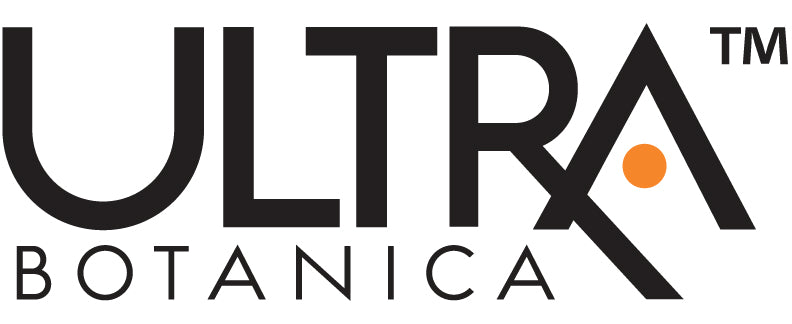You may not think about your liver often—it works quietly behind the scenes until something goes wrong. But taking steps to protect your liver is essential for your overall health and energy.
Whether you’ve had a recent health scare or just feel it’s time to pay attention, this guide offers clear, practical advice to help you protect your liver and prevent disease—no fluff, just real solutions.
Your Liver: The Unsung Hero Within
Think of your liver as your body’s high-powered filter and processing hub. Weighing about three pounds, it performs over 500 vital tasks—removing toxins, aiding digestion, storing nutrients, regulating hormones and cholesterol, and producing key proteins.
With so many essential roles, protecting your liver is highly important to your overall health.

Why Worry About Liver Health? Common Liver Problems
Because the liver is hugely vital to overall health, liver damage can impact the entire body. Liver disease includes various conditions that often progress silently. Since millions are unaware that they have liver issues, early detection and prevention are key to protect your liver.
Common Liver Conditions:
-
Fatty Liver Disease: Soda (especially those containing high fructose corn syrup, HFCS, which is most sodas) delivers a large dose of fructose to the liver. Which can be processed only the the liver. It causes fat to build up in liver cells, leading to nonalcoholic fatty liver disease (NAFLD). It is linked to obesity and diabetes and is rising globally. It can progress to nonalcoholic steatohepatitis (NASH), which causes inflammation and damage. Alcoholic liver disease (ALD) has a similar progression, driven by excess drinking. NAFLD is the most common chronic liver disease worldwide, and sugar and HFCS is a major contributor.
-
Viral Hepatitis: Hepatitis A spreads via contaminated food or water and is usually a short-term issue. Hepatitis B and C spread via blood or body fluids and can become chronic, leading to cirrhosis and liver cancer if untreated.
-
Cirrhosis: Severe scarring from long-term liver damage—whether from hepatitis, alcohol, or fatty liver—disrupts blood flow and function, potentially leading to liver failure.
-
Autoimmune Liver Disease: The immune system attacks the liver, as seen in autoimmune hepatitis, primary biliary cholangitis (PBC), and primary sclerosing cholangitis (PSC).
-
Genetic Disorders: Conditions like hemochromatosis (iron overload) and Wilson disease (copper buildup) can damage liver tissue over time.
-
Liver Cancer: Often tied to chronic hepatitis or cirrhosis, liver cancer can originate in the liver or spread from elsewhere.
Many of these diseases show no symptoms until late stages. Understanding your risks and taking action early is key to to maintaining a healthy liver.
Hidden Dangers: Lifestyle Habits That Harm Your Liver
While some liver issues are caused by infections or genetics, many result from everyday habits. Recognizing these lifestyle-related risks is essential to protect your liver, as damage often develops silently over time.

Soda Consumption: More Harm than You Think
As mentioned above, soda consumption has a direct link to NAFLD, which is now a worldwide health issue. Soda increases liver fat levels, boosts inflammation, increases fibrosis (long-term NAFLD), and can lead to liver scarring.
A 2021 study in JAMA found that daily soda drinkers had significantly higher rates of NAFLD, even if they were not overweight. This proved true over more than six years of follow up.
NAFLD from soda can progress to non-alcoholic steatohepatitis (NASH), which mimics alcoholic liver disease and can lead to cirrhosis.
To avoid or slow NAFLD from drinking soda, start replacing soda with still or sparkling water (add a lemon or lime slice if needed), herbal tea, green tea, or black coffee.
Beware of zero-calorie sweeteners as they come with a long list of negative health effects of their own.
Alcohol Consumption Beyond the Obvious
Liver damage is often linked to heavy alcohol use, but even moderate or occasional binge drinking can strain your liver. When processing alcohol, the liver temporarily pauses other vital functions.
Excessive drinking—more than one daily drink for women or two for men—can lead to fatty liver, alcoholic hepatitis, and eventually cirrhosis. Binge drinking is especially harmful. To protect your liver, be mindful of how much and how often you drink.
The Weighty Issue: Obesity and NAFLD
Obesity is a major cause of nonalcoholic fatty liver disease (NAFLD), now one of the most common liver conditions worldwide. Excess body fat, especially around the abdomen, is closely linked to fat buildup in the liver.
NAFLD isn’t harmless—it can lead to inflammation (NASH), scarring (fibrosis), and even cirrhosis. Managing your weight through a healthy diet and regular exercise is essential to prevent or control fatty liver and protect your liver .

Dietary Pitfalls: Sugar, Processed Foods, and Bad Fats
Processed foods, sugary drinks, refined carbs, and unhealthy fats strain the liver and raise the risk of fatty liver disease. These foods promote weight gain, insulin resistance, and fat buildup in the liver.
To protect your liver, focus on whole, unprocessed foods like fruits, vegetables, lean proteins, and whole grains. Reading labels can help you avoid hidden sugars and unhealthy fats.
Labeled items should be short, under 3 or 4 items, and should be names you recognize and can pronounce. Otherwise, just skip it.
Medications and Supplements: Use with Caution
While medications are often necessary, some meds can harm the liver—known as drug-induced liver injury. Acetaminophen (in Tylenol and over 600 other products) is a common culprit, especially when taken frequently or in high doses.
Other drugs—like certain antibiotics, statins, anti-seizure meds, and even herbal supplements—can also pose risks, especially for those with existing liver issues.
The NIH’s LiverTox database lists substances linked to liver damage. To protect your liver, review all medications and supplements with your doctor or pharmacist.
Toxins in Your Environment
Your liver processes environmental toxins. Long-term exposure to chemicals like those in synthetic clothing, cleaning products, pesticides, and solvents can lead to liver damage.
Minimize exposure in every way possible. Read labels carefully, follow safety instructions, use gloves and masks when using cleaning products and pesticides, and ensure good ventilation when using chemicals to help protect your liver.
Infections and Risky Behaviors
Viral hepatitis, especially Hepatitis B (HBV) and Hepatitis C (HCV), poses a serious risk to liver health. It spreads through contact with infected blood or body fluids—commonly via shared needles, unsterile tattoos or piercings, and unprotected sex.
Hepatitis A spreads through contaminated food or water and is highly contagious. Good hygiene, especially handwashing, helps prevent transmission. Fortunately, effective treatments exist for HBV and HCV.

Food as Medicine: Nourishing Your Liver
Smart food choices are a major key to keeping your liver healthy. A balanced, nutrient-rich diet supports liver function and helps prevent issues like fatty liver disease—fueling your liver to perform its many vital tasks effectively.
Embrace the Rainbow: Fruits and Vegetables
Fill your plate with a variety of colorful fruits and vegetables—they're rich in fiber, vitamins, minerals, and antioxidants that protect liver cells from oxidative stress.
Leafy greens, berries, citrus, carrots, and cruciferous veggies like broccoli and Brussels sprouts are especially beneficial.
Choose Healthy Fats
Not all fats are bad. Some are vital for health. Limit seed oils and avoid trans fats (often labeled as partially hydrogenated oils) found in processed snacks and fried foods.
Choose healthy fats like olive oil, avocados, nuts, eggs, and coconut oil. Omega-3s from fatty fish, flaxseeds, chia seeds, and walnuts support both liver and heart health.
Fiber is Your Friend
Dietary fiber supports digestion, weight control, and liver health. Soluble fiber—found in oats, beans, lentils, apples, and citrus—can help lower LDL cholesterol. Include fiber-rich foods in most meals for overall and liver benefits.
Lean Protein
Protein is vital for tissue repair, including in the liver. Choose lean sources like skinless poultry, fish (especially fatty fish), beans, lentils, and chickpeas to support muscle, metabolism, and overall health.
Coffee's Potential Perk
Moderate coffee consumption may help protect the liver, with studies linking it to a reduced risk of fibrosis, cirrhosis, and liver cancer. Even decaf benefits your liver. But, it’s no substitute for an overall healthy lifestyle.
Enjoy it as a bonus within a balanced diet, avoid sugars, and creams with additives. Also consider choosing organic because of coffee's well-deserved reputation as a heavily sprayed crop.

Hydration Matters
Staying well-hydrated is essential for liver health, helping flush out toxins and support blood flow through the liver. Aim for about 8 glasses (64 ounces) of plain water daily, more if active or living in hot climates.
Most people should also filter their water. Do your best to skip soda and alcohol, as neither help your body like just pure water does.
Supplements & Natural Aids: Hype vs. Help for Your Liver
The wellness market is flooded with products claiming to "detox" or "cleanse" your liver. While tempting, does science support these quick-fix supplements?
The Myth of Liver Cleanses
Most experts don’t recommend commercial liver cleanses, as they lack FDA oversight and clinical proof. Your liver detoxifies naturally when you support it with a healthy diet, regular exercise, and avoidance of toxins.
Milk Thistle (Silymarin)
Milk thistle, known for its antioxidant silymarin, shows potential for liver protection in lab studies, but human trials are inconclusive. It is generally considered safe.
Dandelion Tea and Other Herbs
Dandelion root and leaves are traditionally used for liver support, but human evidence is limited; it mainly acts as a diuretic. Use caution with liver herbs—some, like comfrey and kava, can be toxic. Self-treatment is risky, especially with other health conditions.

Turmeric (Curcumin)
Curcumin, the yellow compound in turmeric, is known for its strong antioxidant properties and ability to balance inflammation. Lab and animal studies suggest it may protect against liver damage and slow fibrosis.
However, more high-quality human clinical trials are needed to confirm these benefits. Curcumin’s low bioavailability limits absorption when taken orally.
That’s why we developed Protisorb™ technology—to maximize the absorption of curcumin's hard-to-deliver compounds. This ensures our UltraCur® Curcumin Complex is not only effective but truly felt by those who take it.
Protect Your Liver: Lifestyle Keys Beyond Diet
A nutritious diet is vital, but other lifestyle habits also impact liver health. Combining these with good nutrition offers comprehensive support to help prevent liver disease.
Get Moving: The Power of Exercise
Regular exercise helps prevent and manage nonalcoholic fatty liver disease (NAFLD) by:
-
Managing weight: Burns calories and reduces liver fat.
-
Improving insulin sensitivity: Helps prevent insulin resistance linked to NAFLD.
-
Lowering triglycerides: Reduces blood fats that contribute to fatty liver.
Aim for at least 150 minutes of moderate aerobic activity weekly—like walking, cycling, or swimming—and add strength training twice a week to boost metabolism.
Even small activity increases, like taking the stairs or short walks, add up. Choose enjoyable activities to keep yourself consistent.
Maintain a Healthy Weight
Being overweight or obese is a major risk factor for NAFLD. Maintaining a healthy body mass index (BMI), typically considered to be between 18.5 and 24.9 for most adults, greatly reduces this risk.
Losing just 5–10% of your body weight can significantly improve liver health by lowering liver fat, improving enzyme levels, and reducing inflammation. Focus on gradual, sustainable changes rather than crash diets.

Manage Chronic Health Conditions
Chronic conditions like type 2 diabetes, hypertension, and high cholesterol increase liver strain and are linked to NAFLD. Managing these through diet, exercise, and monitoring is crucial for liver health.
Work with your healthcare team to keep blood sugar, blood pressure, and cholesterol within target ranges, reducing metabolic stress on your liver.
Stay Hydrated
Adequate water intake supports your liver’s detoxification by helping flush waste and maintain smooth blood flow for effective filtering.
Keep a water bottle handy and sip regularly—don’t wait for thirst, which signals early dehydration. Choose water over sugary drinks to lessen the liver’s sugar burden.
Avoid Illegal Drugs and Smoking
Injecting illegal drugs greatly increases the risk of blood-borne infections like Hepatitis B and C, which can cause chronic liver disease, cirrhosis, and cancer. Seek help from a treatment center if struggling with substance use.
While smoking doesn’t directly cause liver disease, it can worsen existing liver damage and may raise liver cancer risk. Quitting smoking benefits your liver and overall health.
Understanding Liver Disease Diagnosis and Treatment
If liver issues are suspected, pinpointing the cause and damage level is crucial for proper treatment. Early diagnosis improves management and outcomes, highlighting the importance of regular checkups and awareness.
Diagnosing Liver Issues
The diagnostic process starts with your doctor reviewing your medical history, symptoms, lifestyle, medications, family history, and exposures, followed by a physical exam checking for signs like an enlarged liver or jaundice.
Tests may include:
-
Blood tests: Liver enzymes (ALT, AST, ALP), proteins (albumin, bilirubin), viral markers (Hepatitis B/C), autoimmune markers, iron/copper levels, and clotting function.
-
Imaging: Ultrasound to assess liver size, fat, and nodules; CT or MRI for detailed views; FibroScan to measure liver stiffness and fibrosis.
-
Liver biopsy: A needle sample examined under a microscope to precisely assess liver damage and fibrosis, used when diagnosis or staging is unclear.

Treatment Approaches
Treatment for liver disease depends on its cause and severity, aiming to halt damage, manage symptoms, prevent complications, and sometimes reverse damage or cure the condition.
Common liver disease treatments include:
-
Lifestyle Changes: Weight loss, a balanced diet low in processed foods and sugars, regular exercise, and complete alcohol abstinence—especially for NAFLD and early alcoholic liver disease.
-
Medications: Used for specific liver conditions, managing cirrhosis complications, or autoimmune diseases—researchers are actively investigating new drugs for NASH through clinical trials.
-
Managing Underlying Conditions: Control diabetes, hypertension, and high cholesterol to reduce liver stress.
-
Avoiding Harmful Substances: Strictly avoid alcohol and review all medications and supplements with your doctor to prevent liver toxicity.
-
Liver Transplant: A last resort for end-stage liver failure or certain liver cancers.
One encouraging aspect of the liver is its remarkable capacity for regeneration... especially in the earlier stages of disease before extensive scarring develops.
Take Action & Seek Help for Your Liver Health
Protecting your liver means staying informed, managing risk factors, and getting regular checkups. Liver disease can develop silently, so monitor your liver markers and act early—don’t wait for symptoms to appear.
Your doctor can run annual blood tests that indicate your level of liver health.
Know Your Risk Factors
Reflect on the lifestyle and medical risk factors covered in this guide. Ask yourself: Does liver disease run in my family? Do I drink alcohol regularly?
Am I overweight or do I have conditions like type 2 diabetes, high cholesterol, or high blood pressure? Understanding your personal risks helps guide appropriate screenings and tailored prevention strategies.
Get Regular Checkups
Include liver health in your regular checkups. Based on your risk factors, your doctor may recommend routine liver function tests, which are great for tracking trend direction as well as today's status.
Early detection—often before symptoms appear—greatly improves treatment outcomes and helps prevent serious complications.
Be Aware of These Symptoms
Liver disease often shows no symptoms until it's advanced, making early detection vital. Watch for:
-
Fatigue and weakness
-
Loss of appetite and unintentional weight loss
-
Nausea and vomiting
-
Abdominal pain or swelling (upper right side)
-
Jaundice (yellowing of skin/eyes)
-
Itchy skin
-
Easy bruising or bleeding
-
Dark urine and pale stools
These symptoms may indicate liver dysfunction and warrant medical evaluation.

Conclusion
Your liver performs hundreds of vital functions every day. Protect your liver by making simple, consistent choices: eat a balanced, nutrient-rich diet, maintain a healthy weight, exercise regularly, limit alcohol, and avoid harmful toxins.
Know your risk factors, stay informed, and discuss liver health with your doctor. Early detection leads to better outcomes if problems arise.
Taking proactive steps now is one of the best ways to protect your liver—and your overall health—for the long term.
Frequently Asked Questions
1. What are some of the best ways to support liver health?
Eat a balanced, nutrient-rich diet, maintain a healthy weight, exercise regularly, stay hydrated, avoid excess alcohol, avoid soda consumption, limit processed foods and added sugars, manage chronic conditions, and review medications with your doctor.
2. How does regular soda consumption harm the liver?
Regular soda consumption harms the liver by overwhelming it with added sugars, especially high-fructose corn syrup. Unlike glucose, fructose is metabolized almost exclusively by the liver, where excess amounts are converted into fat.
Over time, this fat buildup can lead to non-alcoholic fatty liver disease (NAFLD), a condition that mimics the liver damage seen in heavy alcohol use. Left unchecked, it can lead to liver scarring.
Regular soda intake is now recognized as a significant reason for the global rise in chronic liver disease.
3. What are the common causes of liver disease?
Common causes of liver disease include regular soda consumption, excessive alcohol use, obesity (linked to nonalcoholic fatty liver disease), viral hepatitis (A, B, and C), certain medications or supplements, autoimmune conditions, genetic disorders, and exposure to environmental toxins.
4. What are some of the symptoms that show up in late stage liver disease?
Fatigue, jaundice, abdominal swelling, nausea, easy bruising, dark urine, and pale stools are common. These symptoms often appear when significant damage has already occurred, so regular checkups are crucial to protect your liver.





Share:
Navigating Summer Hazards: Essential Safety Tips
How to Banish Brain Fog Naturally: A Science-Backed Guide to Mental Clarity